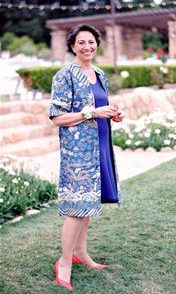With his first book, Sojourner, now on the market, Lee Foust feels he is one step closer to having the career he always wanted. After a long spell of European travel and returns to the States, the American-born writer and performer has now settled in Florence, where he teaches a variety of courses in literature and creative writing. He still finds time for his passion and is never without a notebook and pen, ready to jot down any ideas that come to mind.
Poetry is always music…
Having been to Florence twice before, Foust was no stranger to the city when he returned for a third time, although, he admits, he left his heart in Rome. Nevertheless, he finds himself under the spell of the Tuscan charm.

Writing and creativity have always flowed through Foust’s veins: ‘I started out writing at a very early age, just messing around because I read a lot … for many years I was very fixated on wanting on becoming an actor.’ After acting at high school and directing a Harold Pinter play (one that caused quite a stir, by all accounts), he soon tired of the acting world and changed course to study creative writing at San Francisco State University.
During the 1980s, San Francisco’s underground music scene was hot, and Foust formed a band, Nominal State, initially to set a libretto he had written to music. The few Nominal State records still on the market have become something of a collector’s item as the bulk of the disks were destroyed in a flood. As drummer, singer and lyricist for the stylised electronic band, Foust developed a writing habit from which he has benefited to this day.
In time, however, Foust found San Francisco’s character changed, and he began to think about travel. By working long hours in a second-hand bookstore, he saved up enough money to travel for nine months; in 1986, Foust sold everything and set off for Europe. His first European destination was Rome, which, he felt, ‘was where I needed to be and I felt very at home.’ Arriving, armed with his portable typewriter, not knowing where he was going, he ended up settling in the heart of the city and writing his book Inbetween.
While most of Inbetween was written in Italy, Foust added the finishing touches while in a youth hostel in Vienna, en route to Copenhagen, where he was visiting two Danish friends he had met over dinner in Rome. They were staying in a convent, and, keen to stay out beyond their curfew, the girls accepted Foust’s invitation of his floor for the night; in return, they invited him to visit them in Denmark, which he did shortly before he ran out of funds and returned to the States.
During the 1990s, Foust lived in New York, where he delved more deeply into the world of the performed spoken word. He now employs a mixture of styles, such as lyrical poems and prose experiments, which he calls lyrical prose. He uses the techniques of narrative prose, but with the addition of meter his prose is more suited to spoken-word performance settings. ‘I’m trying to create music in the prose,’ he explains. ‘Poetry is always music, because when you break the lines, you create a metre, you create rhythm and therefore there’s always music in it. It can be good or bad music, but it’s always music!’
For better or for worse, Foust observes, he lives in the midst of the ‘short attention span’ generation, giving rise to flash fiction, a style that allows for experimentation by telling a story in only a couple of lines. Foust’s advice to writers is ‘to write a lot … so you can throw away a lot! You may write some things today, which will be good tomorrow, when the aesthetic has changed.’ This was certainly Foust’s experience with Sojourner, as he rediscovered previously abandoned passages from old notebooks.
Sojourner is a collection written over the years, something Foust describes as ‘an anthology gathered around the mystery of place.’
Foust now has another book underway, and with a wealth of experiences to draw on, it promises to be as interesting as his others.
Sojourner is available from the Paperback Exchange, at via delle Oche 4R, Florence.







